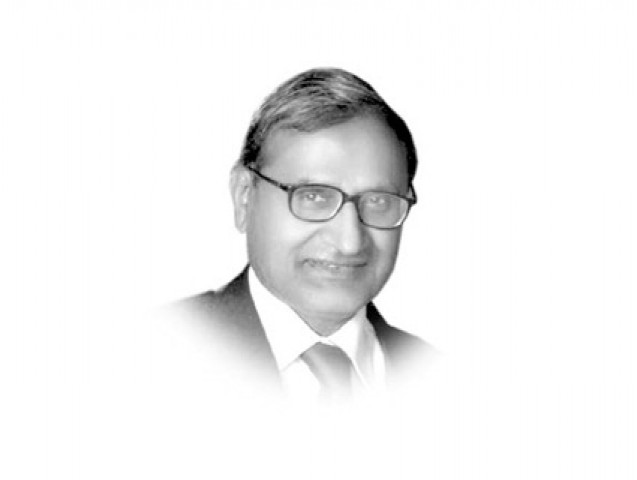Is the PTI an establishment party?
Creation of the establishment or not, the PTI is certainly an anti-political-establishment party.

More than history, it is important to understand what is happening right now. Protest, populism and extremism — the elements of the old typology, explaining the emergence of a third force — are no help. IK was busy protesting in the days of the lawyers’ movement. So was everyone else. Insofar as IK connects with ordinary folks in their yearning for justice, populism could be a possible explanation, but only a marginal one. No one can accuse the PTI of extremism, an ideology that may create a third force. We have to look for an explanation elsewhere. There is an establishment but there is also a political establishment of the parties. This political establishment is as protective of its space as the establishment we know. Barriers to entry are maintained with tacit collusion. A lot of research has been done by political scientists on anti-political-establishment parties. It is surprising that our political scientists have not paid any attention to it.
The research has focused on two hypotheses. First, there is the polarisation hypothesis. The established political parties are poles apart on every issue, creating space for an ant-political-establishment party. It takes a position in the middle or a centrist stance. One might jump to the conclusion that such a polarisation does indeed exist between the PML-N and the PPP. What better evidence of that than the chief minister of Punjab personally marching on the streets against the PPP government. But the polarisation is more apparent than real. They began as allies in the government. Then, there was mutually beneficial cooperation in parliament on constitutional amendments and on some other legislation. As the elections draw closer and closer, the political temperature has increased. It did not, however, prevent covert give and take. Some key appointments furnish the evidence for this. So the polarisation hypothesis does not explain the rise of IK and the PTI.
It is, indeed, the convergence of the main parties — the second hypothesis — that seems to explain the space created for an outside party. In the eyes of the public, it is difficult to tell one party from the other. Both are ruling and both are blaming each other for their own failures. The performance of the Punjab government gives the public a foretaste of things to come when it is the PML-N’s turn to pack its bags for Islamabad. When IK says that both parties are the chips of the same block, he is profiting from their convergence rather than polarisation. He has thus managed to give the PTI an identity, which voters can see as distinct from the established parties.
Creation of the establishment or not, the PTI is certainly an anti-political-establishment party.
Published in The Express Tribune, August 3rd, 2012.



















COMMENTS
Comments are moderated and generally will be posted if they are on-topic and not abusive.
For more information, please see our Comments FAQ